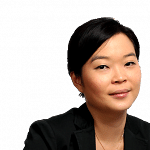It was never going to be easy to chart a future direction for Singapore's high-income, high-cost, high-comfort yet still highly vulnerable economy.
Wrapping up the Budget debate yesterday in front of a nearly full House, Finance Minister Heng Swee Keat recapped the strategies presented in last week's Budget to address head-on, the "waves of change sweeping across the world".
At the risk of oversimplification, they can broadly be grouped into four Ps: partnership, proficiency, pliability and prudence.
As the country feels its way forward into an unpredictable future, partnerships between the Government and the larger community will be crucial in dealing with disruptive trends not only at work but also at home, Mr Heng said in Parliament.
Both in designing transformative business plans and in delivering last-mile social services to an ageing population, the Government will have to work closely with industry, trade associations, unions, workers and individuals, he added.
For Singaporean companies and workers to stand out in a competitive and digital world, they need deep proficiency in their chosen fields. This means continual upgrading and going beyond the familiar to try new things.
It also entails pliability: an ability to adapt quickly to shifts in the economy, he added.
"With rapid changes in technology and business models, job roles will be redefined more often, and new skills will frequently be required."
And after two days of impassionedexchanges over water prices, it was fitting that the principle of prudence continued to underscore discussions about Singapore's finances in the future economy.
As spending needs rise, taxes will have to be raised or introduced. But Mr Heng gave the assurance that these will remain progressive and adequately reward labour, and that the Government will also ensure its spending is cost-efficient.
This thrifty stand maintains Singapore's legendary caution in accumulating wealth and spending within its means, which has served it well over the years.
In fact, all the strategies that Mr Heng outlined yesterday from Budget 2017, building on the recommendations in the report by the Committee on the Future Economy that preceded it, are eminently sound and sensible.
So much so that at times they seemed - to borrow more P words - too placid and predictable for what was hoped to be an ambitious road map into an unsettling but exciting digital-driven future.
While Mr Heng did a comprehensive job of outlining how Singapore should move forward, he spent less time explaining why.
Is it simply because our jobs depend on it? If Singaporeans decided that they would be satisfied with low growth and a slower pace of life, would we still need to try so hard to transform?
Or is there another P that should be part of plans for the future economy: a unifying purpose beyond dollars and cents that could better galvanise Singaporeans to move forward together in embracing technological disruption?
Minister-in-Charge of the Smart Nation Initiative Vivian Balakrishnan gave a glimpse into what one such shared vision might look like, during the Committee of Supply debate that also started yesterday.
Elaborating on how the Government has used technology to improve public services, such as in mobile payments and transport, he said the digital economy "is not about technology but really about maximising future job options and ensuring a better quality of life and an inclusive society".
Assistive technologies, for instance, empower marginalised members of society more than ever before. About 3,000 people have benefited from Tech Able, a resource centre to help people with disabilities access technology and devices that make their lives better.
"Our vision is that a visitor to Singapore should come, look, experience and say, 'I have seen the future and it works'," he said.
Challenging though it might be, embracing a future economy that also enables Singapore to be an even more inclusive society would be a worthy pursuit indeed .


